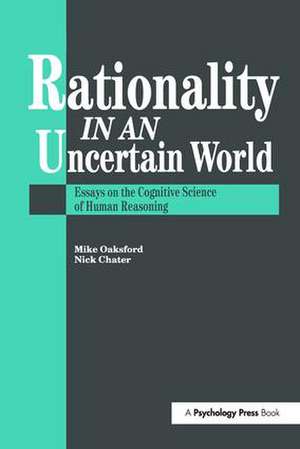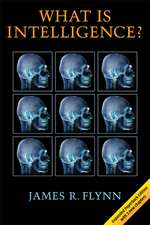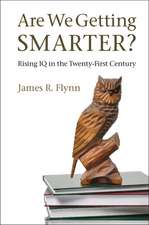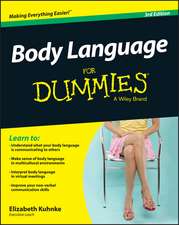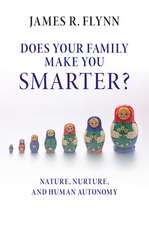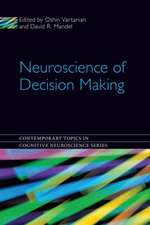Rationality In An Uncertain World: Essays In The Cognitive Science Of Human Understanding
Editat de Nick Chater, Mike Oaksforden Limba Engleză Paperback – 4 feb 2019
Oaksford and Chater's argument draws on research in computer science, artificial intelligence and philosophy of science, in addition to experimental psychology. The authors propose that probability theory, the calculus of uncertain inference, provides a more appropriate model for human thought. They show how a probabilistic account can provide detailed explanations of experimental data on Wason's selection task, which many have viewed as providing a paradigmatic demonstration of human irrationality. Oaksford and Chater show that people's behaviour appears irrational only from a logical point of view, whereas it is entirely rational from a probabilistic perspective. The shift to a probabilistic framework for human inference has significant implications for the psychology of reasoning, cognitive science more generally, and forour picture of ourselves as rational agents.
| Toate formatele și edițiile | Preț | Express |
|---|---|---|
| Paperback (1) | 422.59 lei 6-8 săpt. | |
| Taylor & Francis – 4 feb 2019 | 422.59 lei 6-8 săpt. | |
| Hardback (1) | 1009.76 lei 6-8 săpt. | |
| Taylor & Francis – 30 apr 1998 | 1009.76 lei 6-8 săpt. |
Preț: 422.59 lei
Nou
Puncte Express: 634
Preț estimativ în valută:
80.87€ • 86.47$ • 67.42£
80.87€ • 86.47$ • 67.42£
Carte tipărită la comandă
Livrare economică 17 aprilie-01 mai
Preluare comenzi: 021 569.72.76
Specificații
ISBN-13: 9781138877160
ISBN-10: 1138877166
Pagini: 348
Dimensiuni: 156 x 234 x 23 mm
Greutate: 0.45 kg
Ediția:1
Editura: Taylor & Francis
Colecția Routledge
Locul publicării:Oxford, United Kingdom
ISBN-10: 1138877166
Pagini: 348
Dimensiuni: 156 x 234 x 23 mm
Greutate: 0.45 kg
Ediția:1
Editura: Taylor & Francis
Colecția Routledge
Locul publicării:Oxford, United Kingdom
Public țintă
Postgraduate, Professional, and UndergraduateCuprins
Part I: problems with logicism; autonomy, implementation and cognitive architecture - a reply to Fodor and Pylyshyn; connectionism, classical cognitive science, and experimental psychology; against logicist cognitive science I - the core argument; against logicist cognitive science II - objections and replies; reasoning theories and bounded rationality; bounded rationlity in taking risks and drawing inferences; logicism and everyday reasoning - mental methods and mental logic; the falsity of folk theories - implications for psychology and philosophy. Part II: the probablistic approach; a rational analysis of the selection task I - optimal data selection; a rational analysis of the selection task II - abstract materials; a rational analysis of the selection task III - thematic materials; a rational analysis of the selection task IV - implications; rational explanation of the selection task; information gain explains relevance, which explains the selection; current developments and future directions.
Recenzii
'The authors compile their case, sometimes wittily, and invariably with scholarship.' - D.W. Green, University College, London in Quarterly Journal of Experimental Psycholog, 2000
Descriere
The essays in this work focus on problems with logic-based approaches to human reasoning, showing how a probablistic approach can provide a more psychologically plausible, computationally viable and philosophically respectable account of human
